
Dogs Experience Care And Love For The First Time After Being Saved From A Meat Farm
InterviewNowadays a lot of people view pets such as dogs and cats as their best friends and most loyal companions. For most people, even the very thought of eating their pets sounds disgusting and simply speaking—amoral. However, some countries in the world, especially in Asia, are still passively practicing cruel businesses such as dog farms.
Unfortunately, most Asian countries (even in the year 2021) do not have straightly set laws forbidding the slaughter of dogs for food, but as of recently, a lot of new measures and regulations have been put in place trying to prevent such unethical farms from actively existing and exploiting animals for meat in brutal ways.
There are also a lot of active organizations that are doing life-saving work for animals all across the world, and one of them is known as NGO HSI (Humane Society International). As of recently, Humane Society International has been actively working in South Korea by running a campaign and trying to save over 70 canines from a dog farm.
More info: Facebook | Instagram | hsi.org
Over 70 dogs that were found suffering on a dog farm in South Korea were recently saved from slaughter by NGO HSI (Humane Society International)
Image credits: Humane Society International
We contacted Nara Kim, a campaign manager at HSI/Korea, and asked her to tell us the story: “My name is Nara Kim and I am the End Dog Meat campaign manager for Humane Society International/Korea in Seoul. The farm closure in this story took place in May 2020 and at the time was our 16th dog farm closure. HSI/Korea has been involved in five more dog farm rescues since then, the most recent of which was in August 2021 when we helped the local authorities close a dog farm on Jindo Island. You can see the list of our dog farm rescues here. We usually find out about our farms from other dog farmers with whom we have worked in the past. Dog farmers often talk to each other and word spreads that HSI/Korea has helped farmers move on and start a new life, and so usually they will ask them to make an introduction so that we can help them too. Other times, we will be approached by one of our partner animal groups in Korea for help in rescuing dogs from a farm that has agreed to close. We never try to persuade a dog farmer to close, we don’t need to because so many of them are keen to leave the industry.”
The staff of HSI that were on site found dog breeds such as huskies, golden retrievers, poodles, Chihuahuas, Pomeranians, and many more
Image credits: Humane Society International
The animals were found in rows of dilapidated cages and surrounded by food leftovers, various garbage, and even their own waste
Image credits: Humane Society International
Nara Kim, HSI’s consultant in South Korea, shared in the press conference that the dogs were desperate to be noticed
Image credits: Humane Society International
Here is how the process of closing a meat farm works: “Closing a dog meat farm is a huge operation that requires a lot of planning and preparation. As most of the dogs will need to be flown overseas to find new homes (because dog adoption is still not really established in South Korea yet), that means we need to visit the farm many times to vaccinate all the dogs, quarantine them, and give them all the health checks required for international travel. I will visit the farm many times with our vet to do this, and while they are in quarantine, we make sure that the dogs are well looked after and immediately start receiving proper nutritional food. We also need to make all the flight arrangements for all the dogs, order the travel crates for all the dogs, and find partner shelters in the United States, Canada, or the United Kingdom that have places to take the dogs and help us look for adoptive families. HSI also often sets up our own really big temporary shelter in Canada and the USA to take a big proportion of the dogs where they will receive specialist rehabilitation and care. The actual closure itself can take anything from one day to a week depending on the size of the farm, but it’s always a really early morning start to the day to arrive on the farm in time to calmly take each dog from their cages and place them in travel crates and load them on the truck ready to drive to the airport. Removing terrified dogs from their farm cages requires patience and skill, and it’s something I have done now for many years so I think I am pretty good at reading the dogs’ body language and helping them conquer their fear. Once at the airport, there is lots of paperwork to do before they can fly, but once they are on their way, I feel a mixture of relief and happiness, but also sadness because I become so bonded with the dogs and I miss them very much. But I know that they are going to have happy lives full of love and kindness.”
“Some of the dogs were desperately jumping for me to notice them and offer some affection, while others hid at the back of their cages in fear”
Image credits: Humane Society International
Nara tells us what the dogs mentioned in this article are doing now: “The dogs from our 16th farm are now in adoptive homes in the USA and Canada, so I know that they are living their best lives and hopefully will soon forget the horrible experience of being on a dog meat farm.”
Nakseon Kim, who is the owner of the said farm, said that he had been running this business for over 40 years but was concerned over the fact that the business itself had no future going forward
Image credits: Humane Society International
He allowed the HSI staff to take over and as of now has left the dog farming behind and has been working as a farmer by growing vegetables
Image credits: Humane Society International
Nara shares the most difficult part of caring for animals saved from a meat farm: “Some of the dogs recover remarkably quickly considering the suffering and deprivation on the farms. But others need more time to overcome their fear of people, and so that’s where we spend time with them to rehabilitate them. Some of the dogs we find on every farm are abandoned pets so they can probably adapt back into a family life more easily. But most of the dogs have spent their whole lives in a wire cage and so need help to learn how to be a dog. They don’t know how to lie down on a soft bed, they don’t know what a TV is or a lawnmower, or a washing machine, or how to play, so everything for them is totally new and probably quite frightening. That can be difficult and hard work, but it’s also incredibly rewarding to watch these dogs come out of their shell and embrace their new lives.”
Nakseon told HSI staff that although he entered the business believing he’d make good money
Image credits: Humane Society International
Here’s what Nara thinks of the future of meat farms: “I do think that it’s the beginning of the end for dog meat farms in South Korea. The pace of change in my life is already amazing, even in the past five or so years, more and more farms are closing because so few people now want to eat dog meat. It will be the best thing for the dogs but also for the farmers when all dog farms close because it’s a dying industry.”
“It hasn’t really worked out that way. I earn nothing from this dog farm, and pressure from the government is increasing so it’s not a good business at all”
Image credits: Humane Society International
Nara answered what surprised her most about this story: “I am always surprised that people seem to think that people in South Korea like to eat dogs because it really couldn’t be further from the truth. Most people don’t eat dogs and would be horrified at the thought, actually. I think that’s a real misconception of the West. There is a big campaign here in South Korea to end the dog meat industry and I think it’s important that people realize that.”
For the past few years, a majority of South Koreans have started viewing dogs as companions rather than food, therefore the demand for dog meat has been drastically decreasing
Image credits: Humane Society International
A new set of laws and regulations against dog farms have also been released by the government
Image credits: Humane Society International
Nara tells us more about their organization: “Humane Society International is a global animal protection organization with offices and programs in many countries around the world such as Brazil, Mexico, India, Indonesia, Canada, and of course here in South Korea, and we work on many different issues such as ending the fur trade, trophy hunting, factory farming, and dog and cat meat trade across Asia. In South Korea, HSI has been working since 2015 and here we focus on two main issues of the dog meat industry and also ending animal experiments and replacing animals in laboratories with cutting-edge non-animal research techniques and technologies. I really like HSI’s approach because we are very solutions-led, we don’t identify the many problems for animals, we devise solutions to end the suffering. Our dog meat farm closure program is a good example of that.”
There were rescue operations happening in the midst of the coronavirus pandemic back in 2020, this one included
Image credits: Humane Society International
Nara opens up about why it’s important to care for animals: “I think it says a lot about a society when it helps the most vulnerable and least powerful, whether that’s people or animals. Animals can’t advocate for themselves and cannot speak but they surely suffer and so they need us more than ever to speak up for them. Showing compassion for other creatures with whom we share this planet, and striving to live lives that cause the least harm to others, is one of the central pillars of humanity, I think, and so I’m proud to be able to play my part through my work at HSI.”
The staff working with the dogs has faced some delays when it came to relocating them
Image credits: Humane Society International
The initial plan was to move dogs to the US and Canada where they could get proper rehabilitation and get a second chance at finding their forever homes
Image credits: Humane Society International
Here is some advice for those who want to care for animals: “The best advice is to start with your own life because you have the most control over that. Everything we do in the way we live our lives has the capacity to impact animals positively or negatively. Something as simple as the food we choose to eat can be the difference between life and death for animals on factory farms, so choose plant-based options. Replacing meat and dairy with vegan options is increasingly easy these days, including in South Korea, and it’s also better for our health and our planet. You can also replace animal products in your wardrobe and bathrooms, choosing cruelty-free fabrics instead of fur and leather, and selecting beauty products that haven’t been tested on animals. And sharing our homes with a pet can be really wonderful, but buying a puppy or kitten from a pet store is supporting the cruel pet breeding industry, so consider adopting a shelter cat or dog instead. We can all help shelters by supporting their work, donating our time as volunteer dog walkers, for instance, and promoting the idea of adoption.”
Thankfully, that’s exactly what happened and now the dogs are happy and safe in their forever homes
Image credits: Humane Society International
The dogs are regularly receiving full veterinary check-ups to make sure they do not face another day of suffering, they are loved and cared for for the first time in their lives
Image credits: Humane Society International
18Kviews
Share on FacebookI know why I was downvoted but I believe you misunderstood me
Load More Replies...A couple of months ago when I mentioned this crap was happening I was attacked and called racist etc. Glad to see all of you have changed your minds.
Why do people measure with two standards. Keeping beef cattle in these circumstances is completely normal, while we think it's terrible with dogs.
Because most human cultures devalue non-humans, especially those that are considered food animals. A few companion animals get special treatment, for mostly arbitrary reasons.
Load More Replies...I get that people have cultures but still, dogs and cats are better off to be kept as companions, being loved by owners-not being raised to just get killed and eaten.
I agree that this whole situation is bad. But claiming that “passively practicing cruel businesses” like this happens particularly in Asia is not true. Minks (for fur) and many chickens (for eggs) aren’t treated much better in Western Europe.
Most non-humans are abused in western countries. Dogs and cats are the exception. Anything bred for purposes of extracting “material” is generally living a horrible existence.
Load More Replies...My dogs are Korean rescues and it took them months to even let me pet them. These dogs really need rehabilitation and a tone of love.
So many of them are pure breeds that I seriously doubt they were strays and street dogs. I wholeheartedly believe there’s a whole network of dog snatchers stealing people’s beloved pets. I would be frantic if my dog went missing. I would search everywhere and put up flyers with his picture. If I didn’t find him, I know I would have to eventually give up and just hope beyond hope he was with a new loving family somewhere. It would utterly devastate me to find out he was stolen and sold to a f*****g meat farm. I imagine I would want to take revenge on the place. But, since doing that would make me a criminal too, I would join a group that negotiates to liberate the dogs, rehabilitate them, and get them adopted into safe and loving homes.
I know why I was downvoted but I believe you misunderstood me
Load More Replies...A couple of months ago when I mentioned this crap was happening I was attacked and called racist etc. Glad to see all of you have changed your minds.
Why do people measure with two standards. Keeping beef cattle in these circumstances is completely normal, while we think it's terrible with dogs.
Because most human cultures devalue non-humans, especially those that are considered food animals. A few companion animals get special treatment, for mostly arbitrary reasons.
Load More Replies...I get that people have cultures but still, dogs and cats are better off to be kept as companions, being loved by owners-not being raised to just get killed and eaten.
I agree that this whole situation is bad. But claiming that “passively practicing cruel businesses” like this happens particularly in Asia is not true. Minks (for fur) and many chickens (for eggs) aren’t treated much better in Western Europe.
Most non-humans are abused in western countries. Dogs and cats are the exception. Anything bred for purposes of extracting “material” is generally living a horrible existence.
Load More Replies...My dogs are Korean rescues and it took them months to even let me pet them. These dogs really need rehabilitation and a tone of love.
So many of them are pure breeds that I seriously doubt they were strays and street dogs. I wholeheartedly believe there’s a whole network of dog snatchers stealing people’s beloved pets. I would be frantic if my dog went missing. I would search everywhere and put up flyers with his picture. If I didn’t find him, I know I would have to eventually give up and just hope beyond hope he was with a new loving family somewhere. It would utterly devastate me to find out he was stolen and sold to a f*****g meat farm. I imagine I would want to take revenge on the place. But, since doing that would make me a criminal too, I would join a group that negotiates to liberate the dogs, rehabilitate them, and get them adopted into safe and loving homes.

 Dark Mode
Dark Mode 

 No fees, cancel anytime
No fees, cancel anytime 






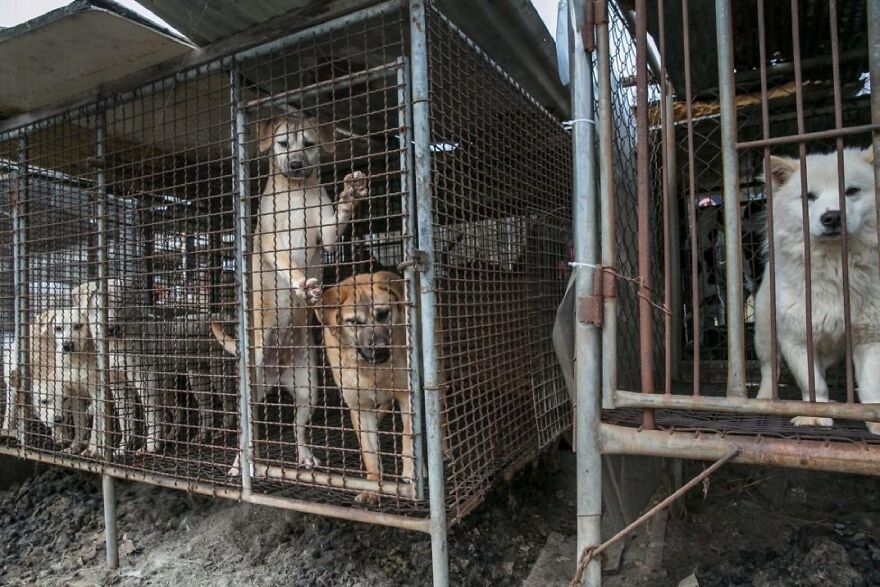
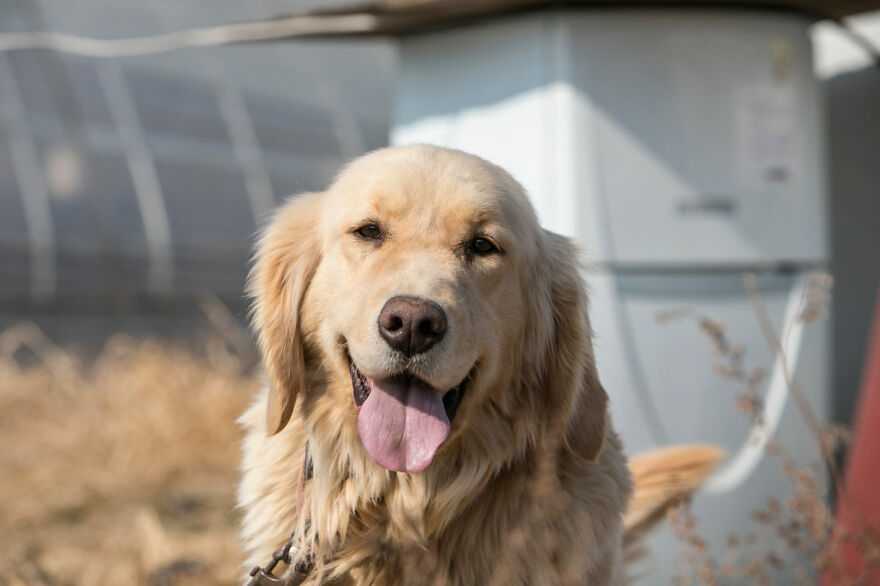
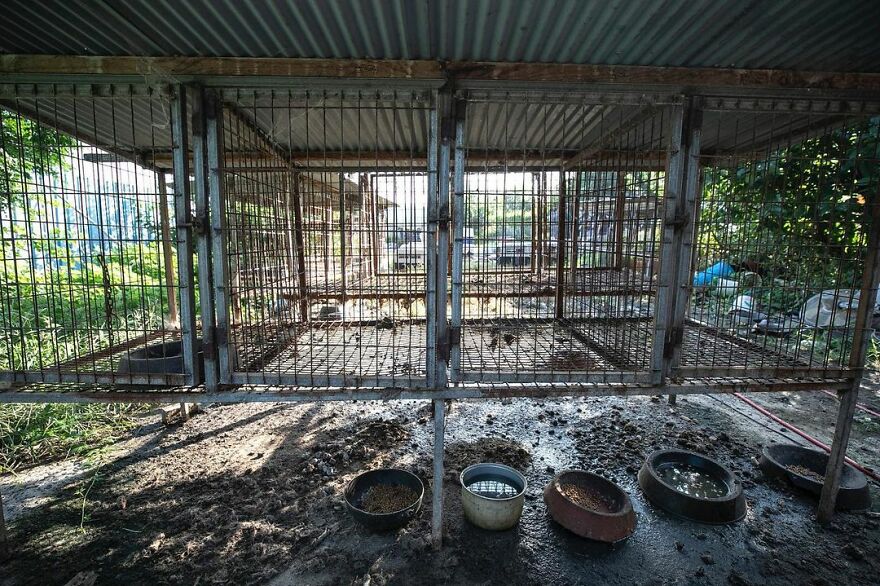
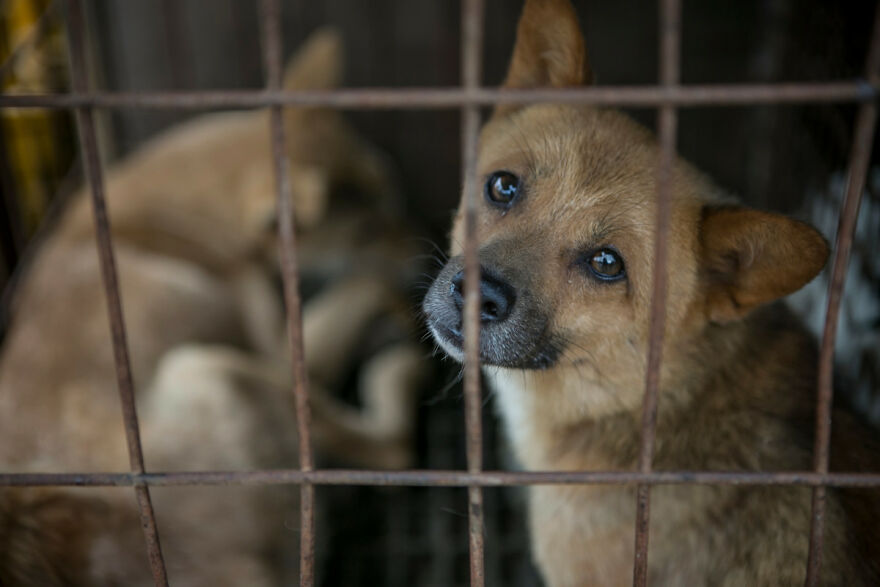
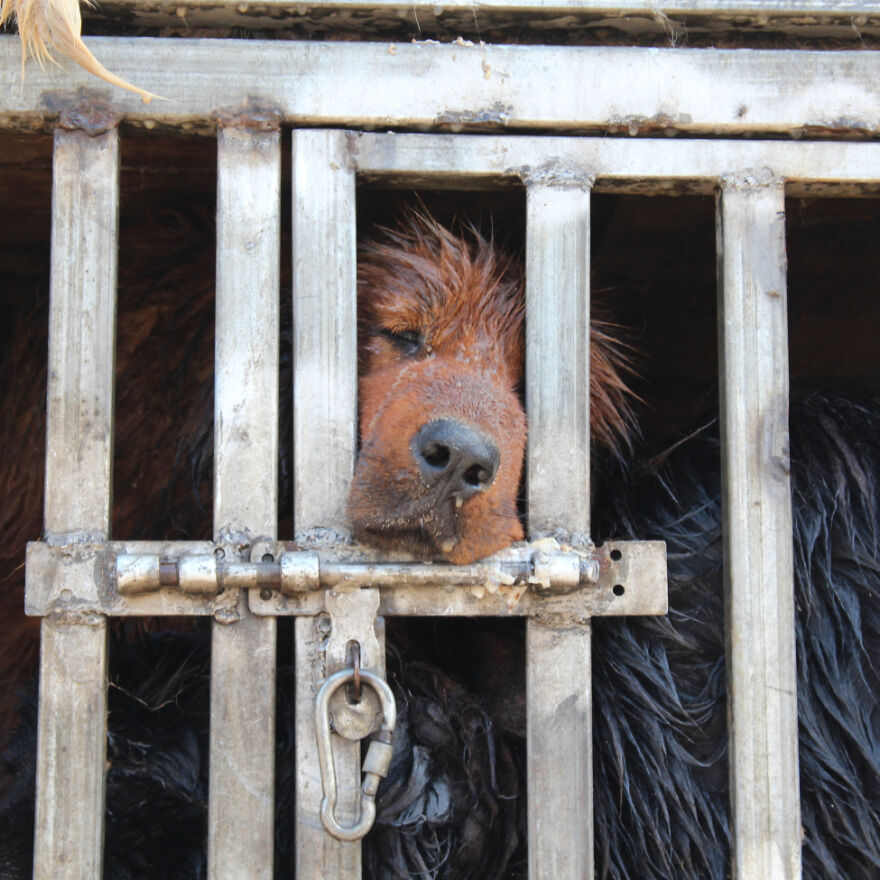
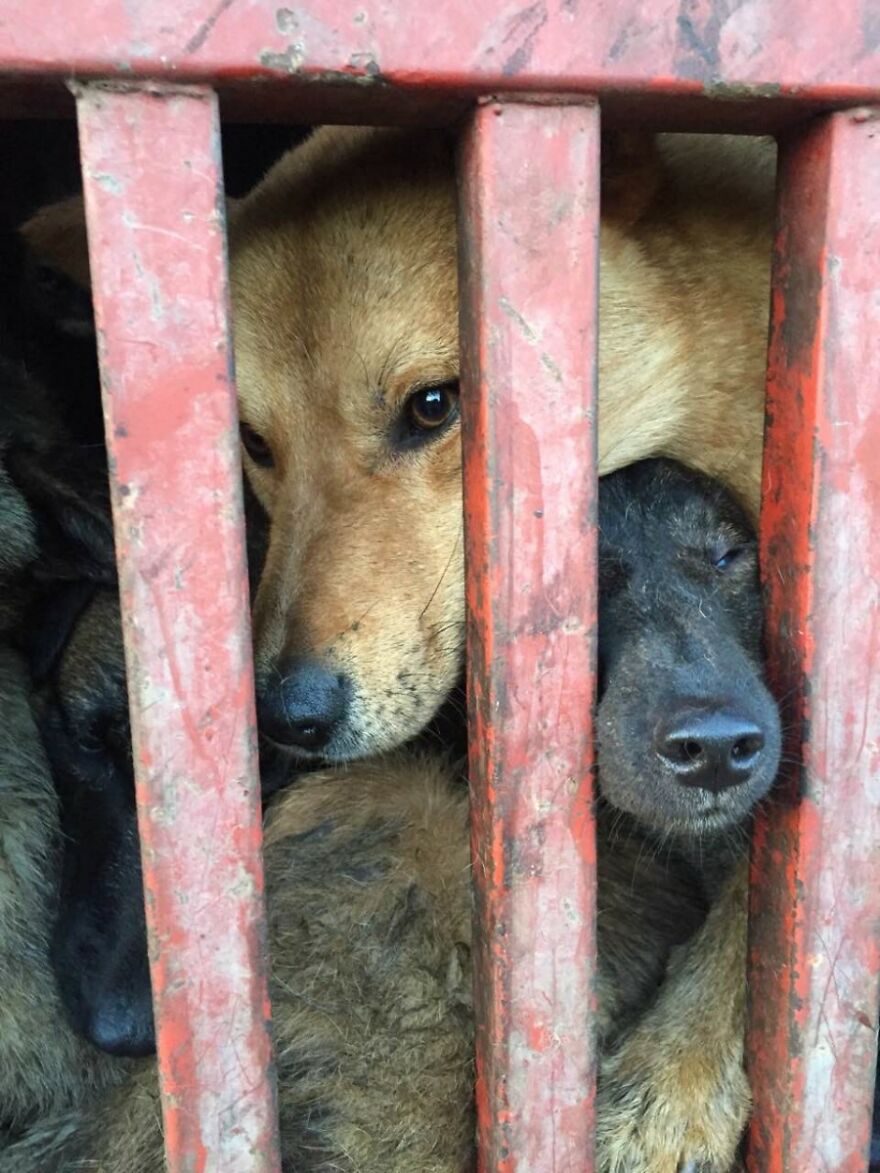
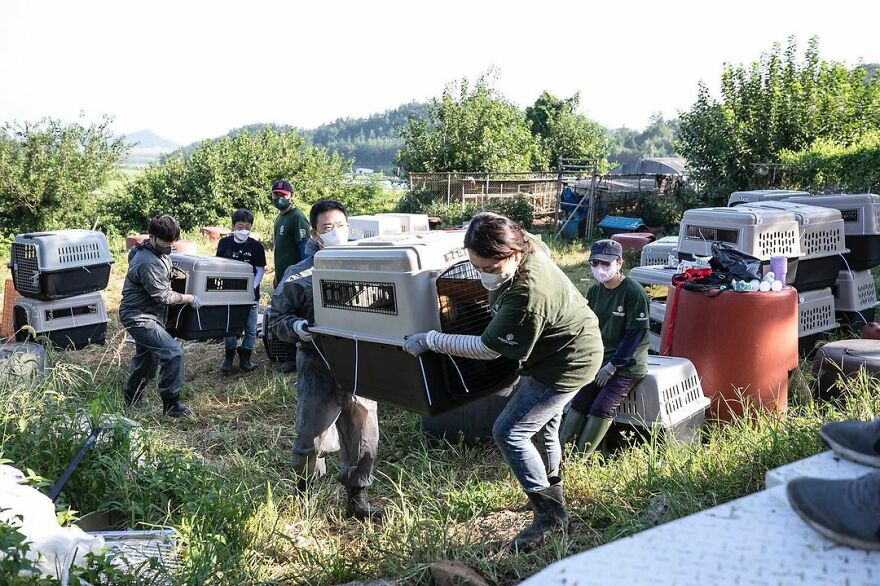
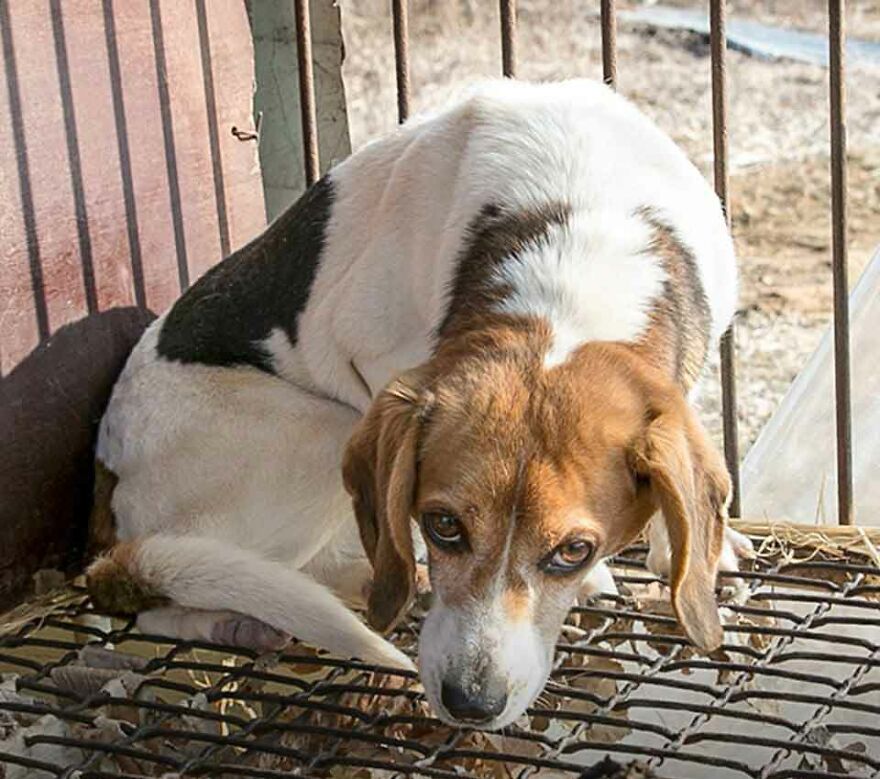
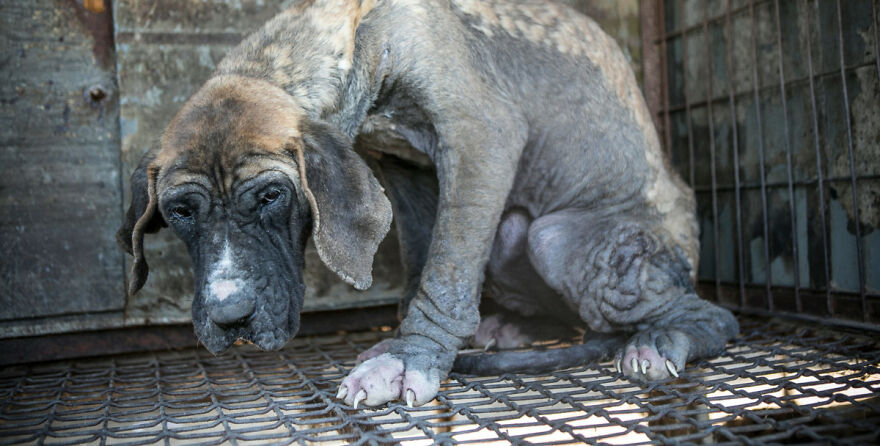
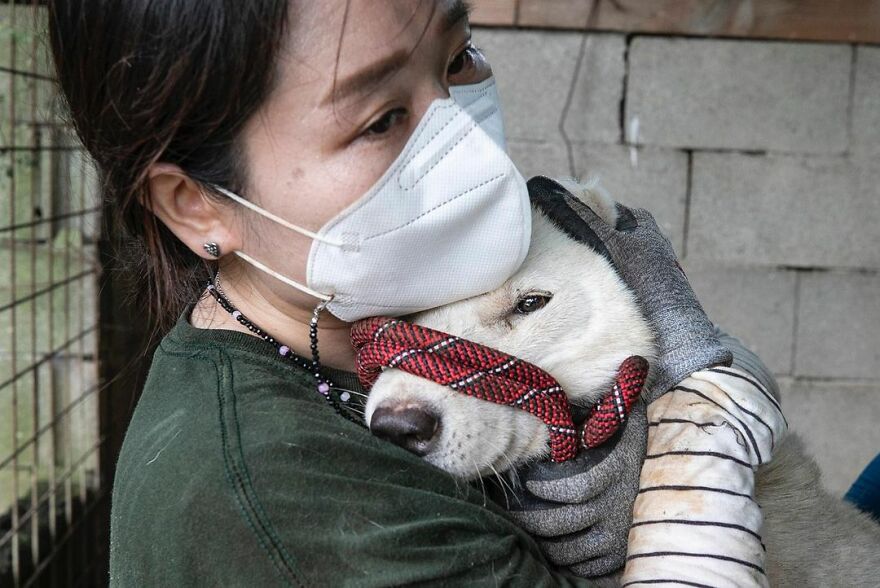
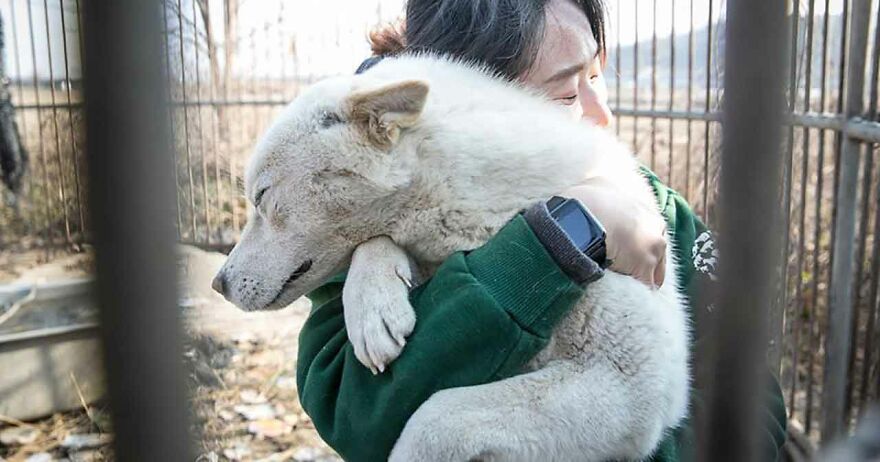
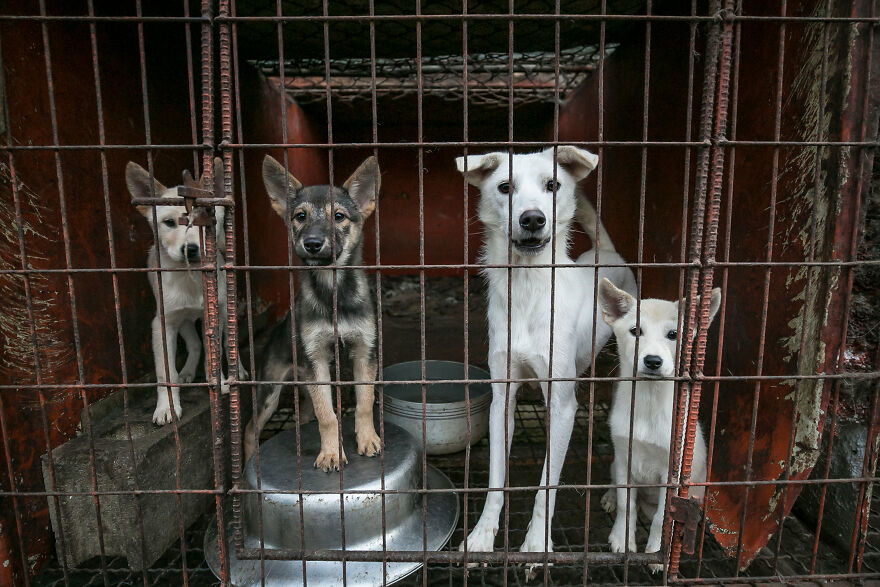
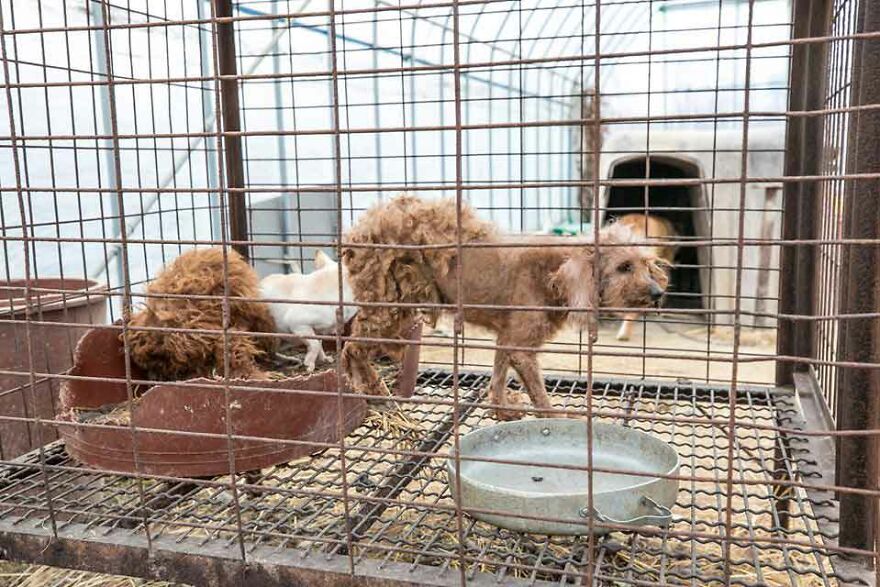
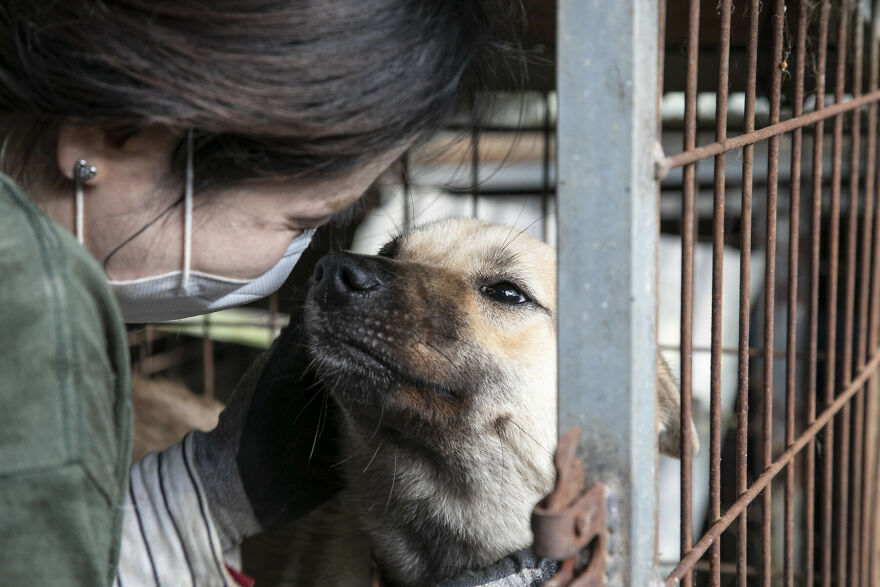
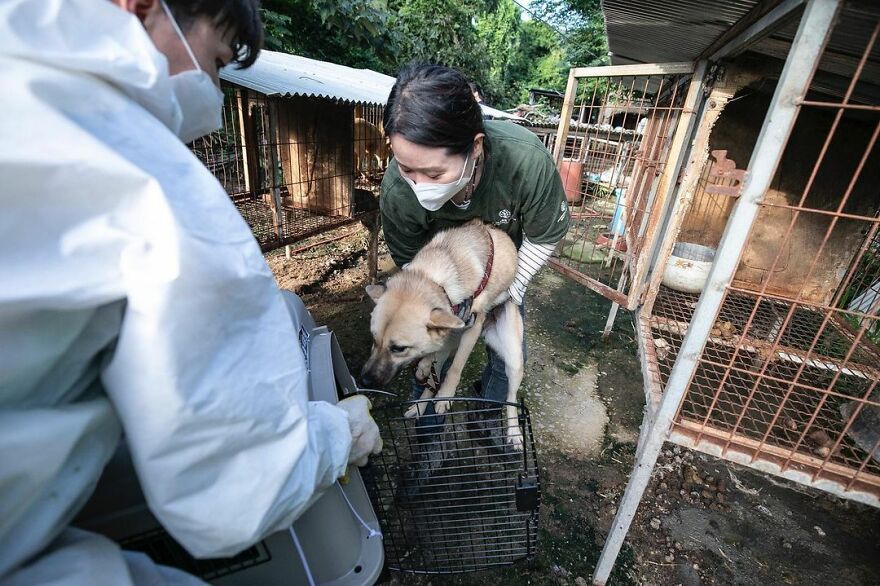
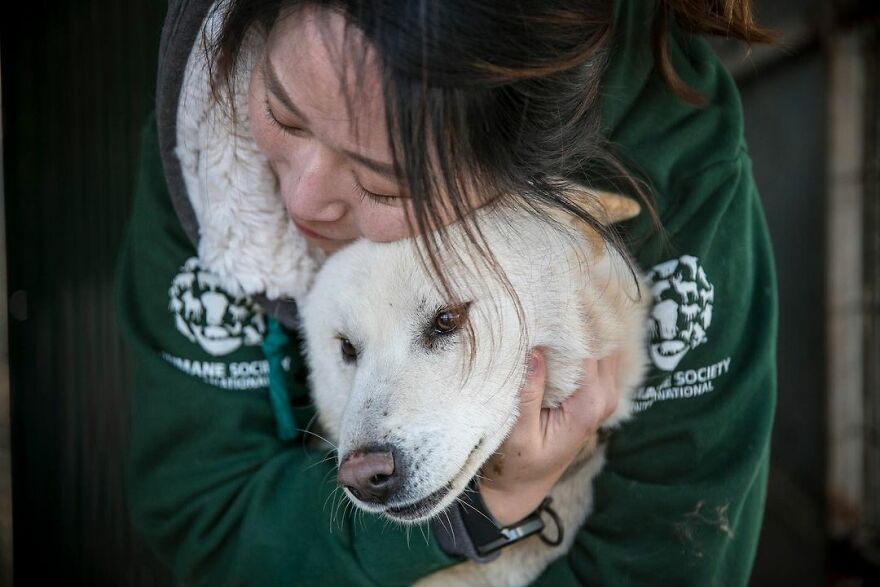












































249
134